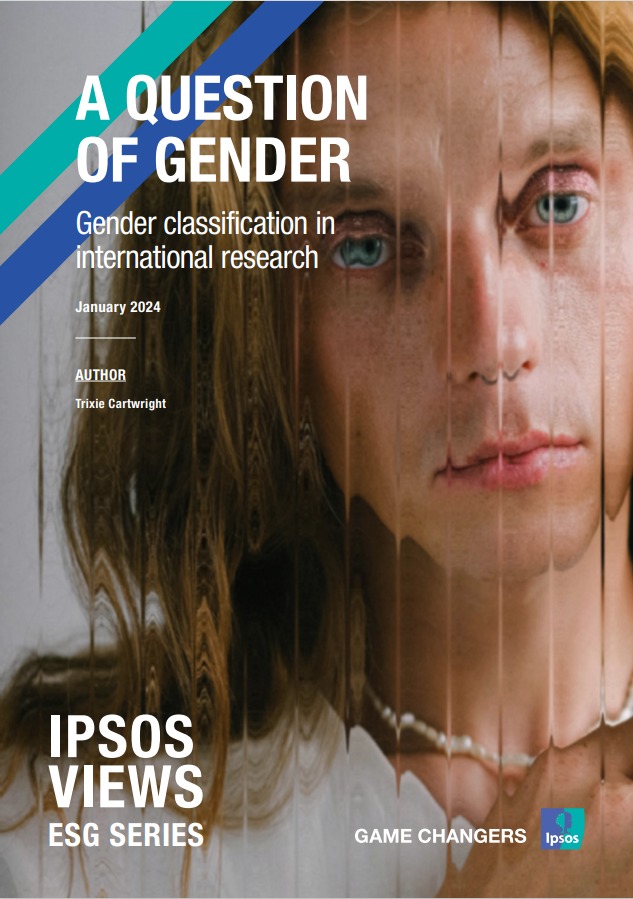A question of gender

There is growing recognition of the diversity of gender identities and the need for guidance on this topic. The terms ‘sex’ and ‘gender’ are often used interchangeably, despite not being equivalent, and for those who have a gender or lived experience that does not align with their sex registered at birth, this distinction is very important.
Very few census questionnaires or official data sources have included questions that distinguish between sex and gender and, where they have, there hasn’t been a consistent approach across countries.
In this paper, Trixie Cartwright, Ipsos’ Global Lead on Diversity, Equity and Inclusion, discusses the importance of asking about gender in an inclusive way, especially when conducting international research.
Download the paper to discover:
- Key data and insights about the non-binary population
Including the limitations of the current data and why it is more likely to be younger age groups who do not identify on the gender binary. - The importance of considering international factors
Thinking about the cultural nuances and legal implications, which can vary widely by country or region, is essential. - How to ask the question about gender
Examining the various ways to phrase research questions about gender, while striving to balance simplicity, understanding and inclusivity. - Why inclusivity should be central at each research stage
Including avoiding making assumptions that could lead to the exclusion of potential respondents, particularly in studies involving products or categories typically targeted to one sex or gender. - Recommended question framework
Suitable for both self-completion and interviewer-led surveys, the framework can be used as is, or customised further to meet requirements for specific research objectives, countries, cultures, or target groups.
It’s clear that the concept of gender is evolving rapidly, and even more so in certain countries and demographics. For example, within the LGBTQ+ community and younger generations, many have grown up with an understanding of non-binary gender and gender fluidity, impacting how they see and understand their own and others’ genders.
As gender questions develop further in the coming years, periodic research will be helpful to examine the changes and suggest when the questions may need reviewing. The priority should always be inclusivity, ensuring appropriate and dignified response options for all respondents.
This Ipsos Views paper is predominantly based on the IJMR paper, “A Question of Gender: Gender classification in international research”, with some updates and additional references.
In addition, listen to this podcast where the author of this paper discusses how to accurately and sensitively capture data on respondents' gender across multiple markets, where cultural attitudes can be extremely varied.
Find here all the podcasts of Ipsos experts and their guests.

![[Webinar] KEYS: What can we learn from what happened in 2025?](/sites/default/files/styles/list_item_image/public/ct/event/2025-12/keys-webinar-what-happened-in-2025-carousel.webp?itok=1gJKCCxx)
![[Webinar] KEYS: THE MIDDLE CLASS: In Crisis?](/sites/default/files/styles/list_item_image/public/ct/event/2025-10/middle-class-family-dinner-food-carousel.webp?itok=iD1QyX8n)
![[Webinar] KEYS: Global Trends - The Uneasy Decade](/sites/default/files/styles/list_item_image/public/2025-09/image/minisite/keys0925.png?itok=3oAiYcxm)